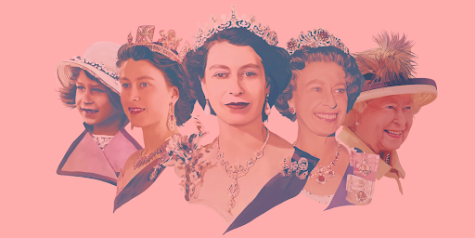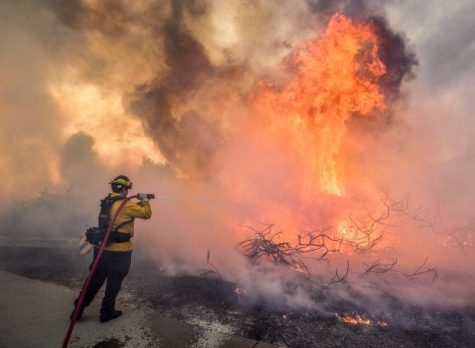Holidays Around the World
We’ve all heard of Hanukkah, Christmas, and Kwanzaa, but what’s happening in other areas of the world?
January 8, 2019
At this time of year, many countries are celebrating their own unique cultures. Here is a sample of some holidays people are commencing around the world.
St. Nicholas Day
On December 6 (western) or December 19 (eastern), St. Nicholas leaves small gifts in shoes or stockings of children. This Christian holiday is also celebrated by attending Mass. He rewards children who have been good with presents such as coins and candy, while the “bad” children get twigs or coal. This holiday is mainly celebrated in European countries such as Germany, Poland, France, Belgium, and the Netherlands, where it is the most popular.
Lunar New Year
Lunar New Year, celebrated in China, Vietnam, Korea, and Tibet, is a celebration of the new year based off the traditional Chinese calendar. That calendar is based on the cycles of the moon, and the holiday takes place between January and February. The holiday is celebrated with family, and a feast of noodles, dumplings, fish and mooncake is held. Red lanterns are lit while red envelopes with money are passed out to family. In China, red is a color that symbolizes good luck and is traditionally for happiness. The legend of Nian contributes to the holiday’s origins. Nian was a human-eating monster who preyed on New Year’s. Supposedly, the color red, fire, and loud noises scared it away. Therefore, people lit red lanterns and firecrackers all night.
Christmas
Since this is one of the most popular holidays, listed below will be international traditions unique to their country instead of the history.
Australia- Santa ditches reindeers and uses kangaroos to get around town.
Italy- The nativity scene originated here and many families hand out presents on January 6, the day of the Epiphany.
Germany- The Christmas tree is usually put up on Christmas Eve.
Netherlands- The Dutch name for St. Nick is Sinterklaas, which is the inspiration for “Santa Claus”.
Hanukkah
Hanukkah is an eight-day celebration of the reclaiming of the Temple in Jerusalem over 2,000 years ago. Under King Antiochus, the people of Israel were forced to only worship Greek gods. In addition to that, he sacked the temple. A group of Jewish men called the Maccabees fought back and were able to take back their temple and practice Judaism. After restoring the temple, they only had enough oil to light for one day. Miraculously, the oil lasted for eight days. Hanukkah is celebrated for eight days because of the lasting oil. Now, it is celebrated by lighting the menorah (a ceremonial candelabra), eating latkes (potato pancakes) and chocolate gelt (coins), spinning dreidels, and giving small gifts.
Kwanzaa
Kwanzaa is a week-long celebration of African heritage in the Americas. The name Kwanzaa comes from the Swahili phrase “matunda ya kwanza”, or “first fruits of harvest”. It follows Nguzo Saba, the seven principles of African Heritage. The seven days are devoted to these principles: Umoja (unity), Kujichagulia (self-determination), Ujima (community), Ujamaa (economics), Nia (purpose), Kuumba (creativity), and Imani (faith). These ideals are displayed as the seven candles lit during the holiday. They are black, red, and green, symbolizing the people, their struggle, and the future. Kwanzaa is celebrated with African art, books, and lighting of the candles.
El Día de los Reyes
Also known as Three Kings Day, El Día de los Reyes is celebrated on January 6 in Latin America and Spain. The three Kings, representing Europe, Arabia, and Africa, found baby Jesus and gave him three gifts. The gold represented Jesus’ royalty, the frankincense represented his divinity, and the myrrh represented his mortality. To celebrate this holiday, there are parades and parties. Rosca de Reyes, or King’s Cake/Bread, is made. Inside the pastry is a small figurine representing baby Jesus, and whoever finds it must host another party in February. Children leave their shoes out and receive small gifts in them the next morning.






